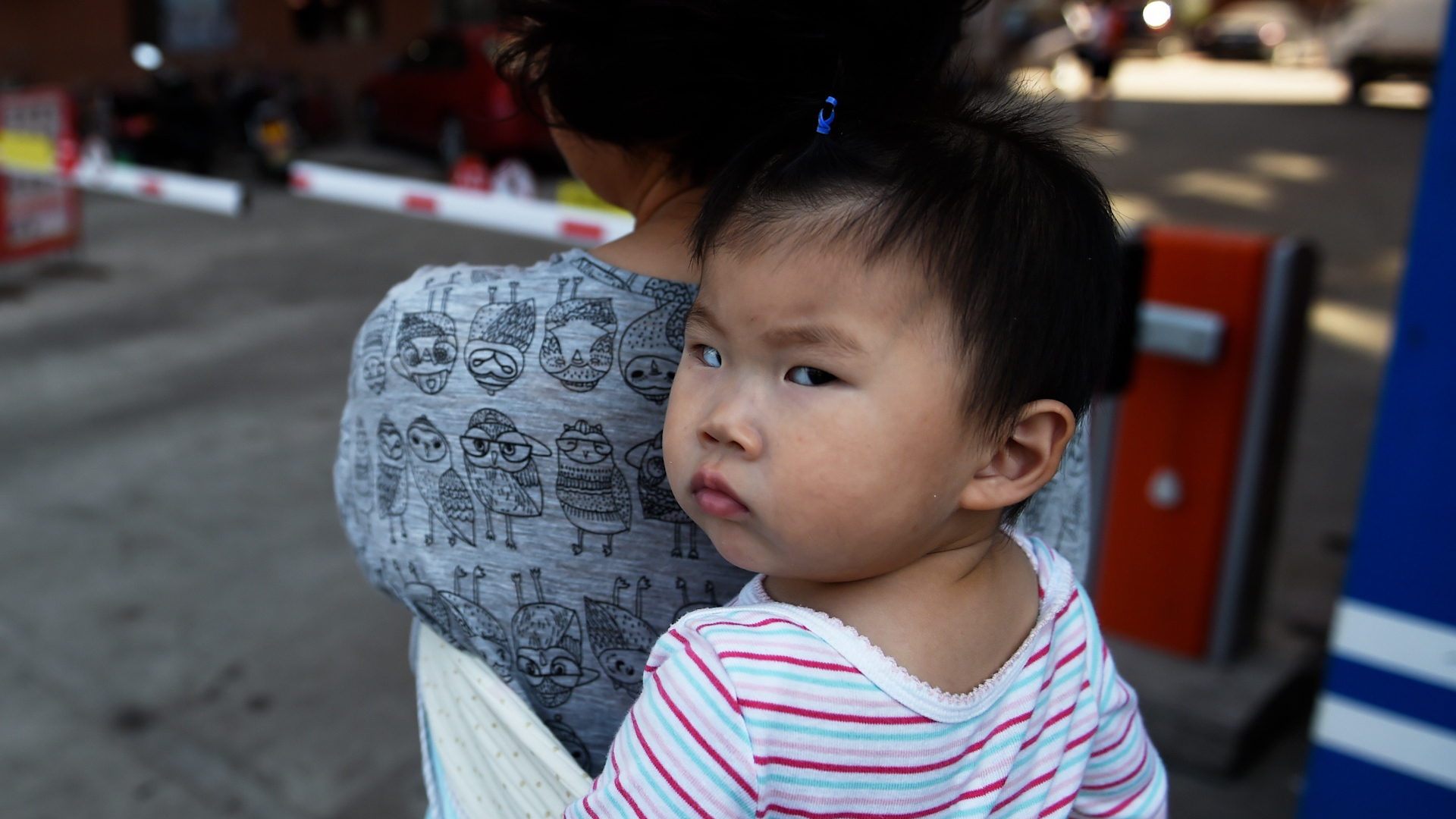
SIMONE DEL ROSARIO: AT ONE POINT, CHINA WAS SO WORRIED ABOUT ITS RAPIDLY GROWING POPULATION – THEY IMPLEMENTED NOTORIOUS FAMILY PLANNING POLICIES.
BUT NOW ITS POPULATION HAS PEAKED. IN 2023 INDIA WILL TAKE FROM CHINA THE LONG-HELD TITLE OF WORLD’S LARGEST POPULATION. CHINA’S WORKFORCE IS RAPIDLY AGING. AND NOW THEY CAN’T CONVINCE PEOPLE TO HAVE MORE KIDS, LEADING TO RECORD-LOW FERTILITY RATES.
TOGETHER, THESE ARE MAJOR HEADWINDS TO CHINA’S ECONOMY.
CHINA SOCIOLOGIST DOUG GUTHRIE: I think the government underestimated what the one child policy would do.
SIMONE DEL ROSARIO: AFTER THE CHINESE COMMUNIST PARTY TOOK CONTROL IN 1949, LEADER MAO ZEDONG ENCOURAGED THE CHINESE TO HAVE MANY CHILDREN, BELIEVING POPULATION GROWTH WOULD STRENGTHEN THE COUNTRY.
IN A 2-DECADE SPAN, CHINA’S POPULATION SURGED FROM AROUND 550 MILLION TO MORE THAN 800 MILLION.
BY THE 1960S, WOMEN ON AVERAGE WERE HAVING MORE THAN SIX KIDS EACH.
TIME FOR A COURSE CORRECT: IN THE 70S THE C-C-P LAUNCHED A NATIONWIDE FAMILY PLANNING PROGRAM, PROMOTING DELAYING MARRIAGE AND CHILDBEARING, CHILD SPACING, AND LIMITING FERTILITY.
DOUG GUTHRIE: China had a massive population and needed to really kind of think about economic growth in the context of that demographic bubble, that demographic system.
SIMONE DEL ROSARIO: THE FERTILITY RATE PLUNGED, BUT BY 1980 THE CCP TOOK IT EVEN FURTHER WITH THE ONE-CHILD POLICY.
CHINA’S FERTILITY EVENTUALLY DROPPED BELOW THE REPLACEMENT LEVEL. AND AFTER DECADES OF LOW FERTILITY, THE CCP AGAIN TRIED TO COURSE CORRECT. IN 2016 THE ONE CHILD POLICY BECAME TWO, AND IN 2021 THEY UPPED IT TO THREE.
DOUG GUTHRIE: They thought, if we just take away the regulations, people will have more children. And you know, we’ll have a new demographic level growing up to help run the economy. And I think the cultural change was what the party underestimated because people didn’t immediately start having more children and bigger families, they thought, actually, a single child for two parents is the right number.
SIMONE DEL ROSARIO: IN AUGUST, CHINESE STATE MEDIA REPORTED THE FERTILITY RATE DROPPED TO A RECORD LOW OF 1.09 IN 2022.
THE U-N’S MEDIUM PROJECTION OF CHINA’S POPULATION SHOWS IT COULD BE CUT NEARLY IN HALF BY THE TURN OF THE CENTURY.
BUT ITS THE RAPIDLY AGING POPULATION THAT’S OF BIGGER CONCERN FOR THE ECONOMY.
BY 2079 THERE COULD BE MORE PEOPLE OUTSIDE THE WORKING-AGE POPULATION THAN IN IT, ACCORDING TO THE U-N’S MEDIUM ESTIMATE.
THAT’S A LOT OF DEPENDENTS FOR A SHRINKING WORKFORCE TO TAKE CARE OF.
BUT WHILE THAT IS DECADES DOWN THE ROAD AND CHINA’S WORKING POPULATION IS CURRENTLY AT ITS PEAK, THERE ARE ALREADY ECONOMIC IMPLICATIONS AT PLAY.
PETER ZEIHAN: Most of the consumption in a modern system happens when you’re in your 20s and 30s, when you’re buying cars and raising kids and buying homes. Well, because of the one-child policy, the Chinese don’t have much of a generation in that block at all and since the one-child policy is now over 40 years old we’ve now had a full generation of people to not have kids and that is manifesting in the data as well.
SIMONE DEL ROSARIO: NOT ONLY ARE THEY NOT HAVING KIDS, THERE’S A MOVEMENT OF YOUNG ADULTS JUST NOT BUYING IN TO THE GRIND.
IN CHINA IT’S CALLED THE “LYING FLAT” YOUTH – WHERE A GENERATION REJECTS WORKING LONG HOURS FOR LITTLE PAY.
DOUG GUTHRIE: Maybe this is a vestige of the sort of cultural residuals of the One Child policies, you know, if you have two parents taking care of you, and then you go off to college, maybe you’re not so ambitious, maybe you do just want to lay at home and look on social media. So there’s a big demographic here that I think the government worries about, it’s not just about, you know, people are not finding jobs, it’s people are not wanting jobs to be the engine of the performance as much as possible.
SIMONE DEL ROSARIO: FOR JUNE, CHINA’S URBAN YOUTH UNEMPLOYMENT HIT A NEW RECORD OF 21.3%. AS FOR JULY? THAT’S NOT PUBLICLY KNOWN. CHINA SAID IT WOULD SUSPEND REPORTING THE DATA, MERE MONTHS AFTER IT STOPPED PUBLISHING CONSUMER CONFIDENCE.
FOR STRAIGHT ARROW NEWS, I’M SIMONE DEL ROSARIO.










